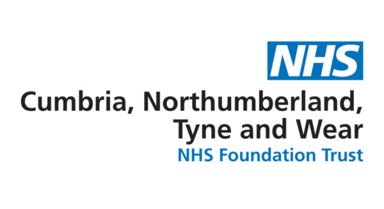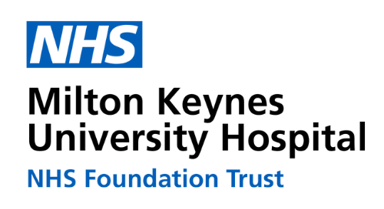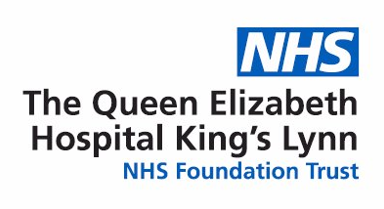Cumbria, Northumberland, Tyne, and Wear NHS Foundation Trust delivers the right care at the right time to its patients with the help of BigHand Digital Dictation and mobility software
Cumbria, Northumberland, Tyne, and Wear NHS Foundation Trust is one of the largest mental health and disability trusts in the England. It is one of the first mental health trusts in the country to achieve a rating of ‘Outstanding’ from the Care Quality Commission (CQC), and today is applying the learnings from its own ‘Trust Transformation’ programme to helping other trusts across the UK achieve service excellence and sustainability.
NHS England has published its objective of transforming mental health services by 2020, putting mental health on an equal footing to physical health. Its Five Year Forward View for Mental Health highlights the importance of data in delivering the right care, at the right time, in the right place*, a critical element in the transformation process.
As such, the journey that Cumbria, Northumberland, Tyne, and Wear NHS Foundation Trust (CNTW) has undertaken, supported by BigHand, to remove manual processes and paperwork, and automate the collection and curation of clinical information, provides valuable insight into how technology, combined with a clarity of vision, can be an enabler of excellence.
Recognition of Need
Back in 2012, CNTW embarked on a Trust-wide transformation project focused on releasing time to care and improving the productivity of its health care professionals. In undertaking a review of its service model, the Trust explored 720 patient journeys, by cluster and locality and looking at patient clinical contact. CNTW identified that it had a number of clinical staff spending a significant amount of time on administrative tasks and paperwork: travelling between patients in the community to a central office in order to type up notes from their patient visits, and often doing so late in the day and painstakingly slowly.
We wanted to start from the ground up in order to decrease the amount of low-value activity across the Trust. A key part of this was reducing the admin our clinicians were undertaking. For example, why would we have crisis psychiatric nurses typing up notes in the middle of the night when they’re needed to provide urgent patient care? The whole exercise was about recognising where we had pain points in the care pathway and then looking at how we could address those. - Stewart Gee, Head of Transformation and Improvement
Following a small but highly successful proof of concept that it conducted in-house with off-the-shelf digital dictation recording software and 50 smartphones, the case for an enterprise level mobility solution was clear. Following a comprehensive procurement process, BigHand Digital Dictation and its partner M*Modal’s speech recognition software were selected for their best-in-class technology combined with BigHand’s flexible service delivery methodology.
The solution was rolled out across CNTW’s community services team, including a newly-formed central transcription team, alongside 3G enabled laptops with secure access to patient records.
“The central transcription team, who work 24x7x365 and have a shift pattern that flexes with demand, has played a significant role in our service transformation,” explains Stewart.
“On the one hand, getting the notes into the patient administration system quickly and accurately is vital in supporting clinical decision making and the patient experience – hence the decision to have this team work the same hours as our clinicians who are providing 24x7 care. In addition though, the specialism of the team has enabled us to put in place further standard processes that support our cost reduction and sustainability objectives.”
Designing the Workflow
Indeed, the project team, which comprised members of CNTW’s Transformation team, IT and BigHand consultants, was adamant that the technology should be recognised by all stakeholders as integral to the Trust’s wider service transformation, and developed a roll-out programme that adopted a ‘train the trainer’ approach.
The introduction of BigHand across the Trust has not only been an important component in our drive to become more cost effective, but
has improved efficiency through the reduction in turnaround times. - Sarah Keetley, Transformation Lead
In line with its objective of optimising internal processes and removing as much of the non-value activity as possible, CNTW has also set out to make sure that its transcription team is as efficient as possible by adding speech recognition to the BigHand Digital Dictation and Mobility platform, identifying the scenarios that the two software applications would best support.
Releasing Time to Care
Through its diligent and highly focused approach to optimising the effectiveness of its staff, supported by BigHand’s process transformation technology, Cumbria, Northumberland, Tyne, and Wear NHS Foundation Trust is now recognised as an exemplar within the UK’s mental health industry.
The Trust has reduced the amount of time its clinical staff spend on administrative tasks from an average of four hours a day just over one hour, as staff are now able to send voice files directly to the transcription team from their mobile devices.
With the transcription team processing an average of 10,000+ dictations per month, communications to patients are much quicker than they were before the implementation of the BigHand Digital Dictation and Mobility solution, whilst patient records are also more complete and of a higher quality.
Sarah comments:
We have a same-day turnaround for all dictations today; dictations that previously might have taken as long as six to eight weeks to complete. Patients know now that they will get both clear and timely communications, which in turn has improved safety and reduced out-of-hours risk because our crisis teams have up to date records.
“The technology has also improved staff’s work/life balance,” Sarah continues. “We have been able to remove chunks of time where staff were using the last part of their shift to complete their paperwork, leaving patients – some of whom might have urgent needs – waiting for the next shift to come on. Nurses and doctors can see patients much later into their shift, which is what they want to do. And, they are now able to work in flow much better, by dictating notes immediately following a patient visit, rather than ‘batching’.”
“Finally, the technology has improved the quality of the admission process because patients are now being admitted with a full set of notes and an up to date patient record. This is particularly significant as these patients are often the most vulnerable and at risk.”
Stewart concludes: “Fundamentally, BigHand Digital Dictation and M*Modal’s speech recognition have helped us to remove as much of the paperwork as we could, allowing nurses to get back to being nurses, and doctors back to being doctors.”
“The Trust would not have invested in the technology if we didn’t believe that we could get the cost benefit back by releasing time to care. Not only have BigHand and M*Modal helped us achieve that; the technology is allowing us access to the right data, at the right time, which has been instrumental in enabling our Trust Transformation vision.”






